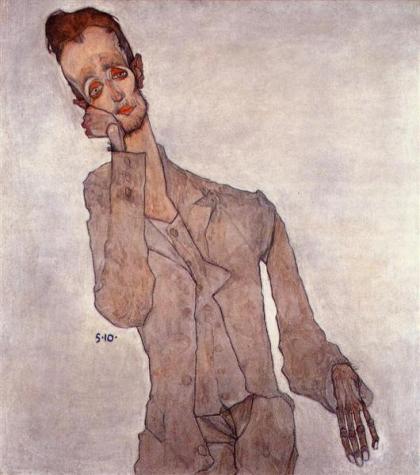Catholics Must Honor Labor
Catholics must honor labor. This has been a steady teaching of the Popes for at least the last century and a quarter. Catholicism, after all, rejects the nasty individualism that characterizes so much of the modern world, in favor of a philosophy of the common good. Catholics realize that we as individuals prosper only when everyone prospers. Catholics understand that the economy only thrives when all of its constituent parts succeed. And Catholics know in their hearts that when some persons suffer, all are diminished.
This awareness can be traced back at least as far as Pope Leo XIII (reigned 1878 to 1903). Leo became Pope at a difficult moment in Church history. His immediate predecessor, Pius IX, had fought a losing battle to maintain control of the Papal States. As a result, Leo’s temporal realm no longer extended over much of central Italy, but was now encompassed within the walls of Vatican City.
Faced with new circumstances, Leo chose to reinvent the papacy as a voice of morality and conscience to the world. And the issue he chose to make his own was the rights of labor.
1891 was a dangerous year. Europe was governed by reactionary forces. Monarchy had overstayed its welcome, but it still pressed heavy upon society. The Industrial Revolution, meanwhile, concentrated great wealth in a few hands while impoverishing millions. A hint of violent revolution was in the air. Assassination was even seen by some as a means of legitimate resistance.
Leo XIII responded to this moment of crisis with his encyclical Rerum Novarum. Its Latin title — Rerum Novarum translated means “On Revolution” — captured the mood. The Pope did not wish to side with the revolutionaries. Still, he spoke movingly of the plight of the working classes. “Relations” between workers and employers, he wrote, had changed, resulting in “the utter poverty of the masses.”
Leo did not wish to deny the right of private property. On the contrary, he sought to create the conditions in which all might enjoy that natural right. All who labored had a right to just remuneration, sufficient to support a family, to provide for savings, and to take time away from work.
And a principal means for achieving this goal was labor unions. Leo praised “workingmen’s associations” and encouraged them to aim to attain improvements in “body, soul, and property” (para. 57). Unions, furthermore, were obliged not just to seek a just wage for their active members, but to ensure the well-being of those members now too old, too ill, or too badly injured to work (para. 58).
Succeeding generations of Popes have built on Leo’s sturdy foundation. The circumstances of 1931 were every bit as grim as those of forty years before. It was the heart of the Great Depression. The market had failed, the world’s financial order lay in ruins, poverty and unemployment were endemic, and revolutionary movements of the right and left — Fascism and Communism — were on the march.
Pope Pius XI in his encyclical Quadragesimo Anno — “On the Fortieth Anniversary” — responded to the crisis by once again urging economic justice. And, once again, organized labor was seen as a necessary part of the remedy. Pius XI praised the efforts of the “workers associations” that had sought to improve the lives of their members, and had special words of praise for the clergy who assisted “to bring Leo’s program to full realization” (para. 33). Even while he discouraged labor unions from associating with Communism, he urged them to work ceaselessly to achieve a fairer distribution of economic resources.
Saint John XXIII revisited these themes in 1961 in his encyclical Mater et Magistra. The world was once again confronting danger. The Cold War hung heavy like a choking fog. Still, in the West, a relative degree of economic stability might be found.
Good Pope John wished to stir Catholics out of their complacency. He stressed the universality of humankind, and spoke of Catholic obligations to the betterment of the entire world. Surveying the global scene, John XXIII expressed solidarity with the “millions of workers in many lands and entire continents condemned through the inadequacy of their wages to live with their families in utterly subhuman conditions” (para. 68).
Even in developed countries, John added, many workers continue to receive “a rate of pay inadequate to meet the basic needs of life” (para. 70). He called for a reduction of inequality. He even recommended that employers share ownership of their workplaces with their workers in partnership arrangements (para. 75).
In 1981, Saint John Paul II offered his first response to Leo’s summons on behalf of social justice in his encyclical Laborem Exercens. He stressed the centrality of work to the very essence of what it means to be human. Human beings are meant to work, but this did not mean that humans should suffer in unremitting toil. Work should be a means of achieving fulfillment, a way of developing one’s skills and gifts, even a form of self-expression. Every type of labor, furthermore, is worthy of dignity and should be regarded and treated as such.
Portions of Laborem Exercens might even shock a contemporary capitalist audience. Labor, he announced, enjoyed “priority” over capital (para. 12). “Rigid capitalism” had “to be reformed from the point of view of human rights” (para. 14). And the rights of labor, he insisted, constituted a category of the “fundamental rights of the person” (para. 16). In this context, John Paul II warmly endorsed labor unions. “They are indeed a mouthpiece for the struggle for social justice” (para. 20).
Ten years later, following the fall of the Soviet Union and the conclusion of the Cold War, John Paul II returned to these themes in Centesimus Annus (1991). Like his predecessor John XXIII, John Paul II urged wealthy Catholics to take account of the laboring poor, both in their home countries and around the world. Poverty and marginalization, he feared, presented grave threats, blighting the lives of millions and endangering world order in new ways.
John Paul II, furthermore, urged his audience to “struggle against” “an economic system” that “upholds the absolute predominance of capital” (para. 35). He spoke against both unfettered capitalism and state socialism, and recommended instead a system marked by social justice and a solicitude for even its humblest members.
Most recently, Pope Francis has addressed these themes in his Apostolic Exhortation Evangelii Gaudium (2013). The unbridled quest for wealth and riches, he warned, constituted a form of “idolatry” (para. 55). In today’s economy, Pope Francis observed, human beings have become expendable. They have worth only insofar as they produce economic goods and services. Today’s economy, Francis admonished, not only oppresses and exploits (para. 53), but it does something even worse. It renders disposable whole classes of persons — the elderly and the vulnerable.
Humans, Pope Francis declared, were not made for the market, but the market was made for humankind. It should seek to be inclusive and to promote human flourishing. It must never become an economy that “kills.”
As American Catholics contemplate Labor Day, they should reflect on this papal legacy. As a century and quarter of papal teaching reminds us, we must all honor labor and work for social justice.
This article is brought to you by the author who owns the copyright to the text.
Should you want to support the author’s creative work you can use the PayPal “Donate” button below.
Your donation is a transaction between you and the author. The proceeds go directly to the author’s PayPal account in full less PayPal’s commission.
Facts & Arts neither receives information about you, nor of your donation, nor does Facts & Arts receive a commission.
Facts & Arts does not pay the author, nor takes paid by the author, for the posting of the author's material on Facts & Arts. Facts & Arts finances its operations by selling advertising space.



















